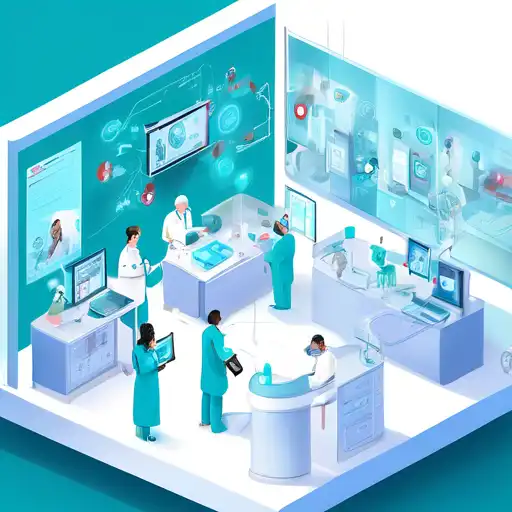The Transformative Impact of IoT on Modern Healthcare
The Internet of Things (IoT) is revolutionizing healthcare services by enabling more efficient patient care, reducing costs, and improving the quality of life for patients. This technology connects devices and systems, allowing for seamless communication and data exchange. In this article, we explore how IoT is making healthcare more accessible, personalized, and efficient.
Enhanced Patient Monitoring
One of the most significant benefits of IoT in healthcare is the ability to monitor patients remotely. Wearable devices and sensors can track vital signs such as heart rate, blood pressure, and glucose levels in real-time. This continuous monitoring allows for early detection of potential health issues, reducing hospital readmissions and enabling timely interventions.
Improved Drug Management
IoT devices are also transforming drug management by ensuring patients adhere to their medication schedules. Smart pill dispensers can alert patients when it's time to take their medication and even notify caregivers if a dose is missed. This technology is particularly beneficial for elderly patients or those with chronic conditions.
Streamlined Hospital Operations
IoT is streamlining hospital operations by optimizing asset management and reducing wait times. For example, RFID tags can track medical equipment, ensuring that staff can quickly locate necessary tools. Additionally, IoT-enabled systems can manage patient flow, reducing overcrowding and improving the overall patient experience.
Personalized Healthcare
With the data collected from IoT devices, healthcare providers can offer more personalized treatment plans. This data-driven approach allows for tailored therapies that consider the patient's unique health profile, leading to better outcomes and higher patient satisfaction.
Challenges and Considerations
Despite its benefits, the integration of IoT in healthcare comes with challenges, including data security and privacy concerns. Ensuring the protection of sensitive patient information is paramount, and healthcare providers must implement robust cybersecurity measures.
In conclusion, IoT is playing a pivotal role in transforming healthcare services. From remote monitoring to personalized treatment plans, this technology is making healthcare more efficient and patient-centered. As IoT continues to evolve, its impact on healthcare is expected to grow, offering even more innovative solutions to improve patient care.
For more insights into how technology is shaping the future of healthcare, explore our articles on digital health trends and medical technology innovations.
